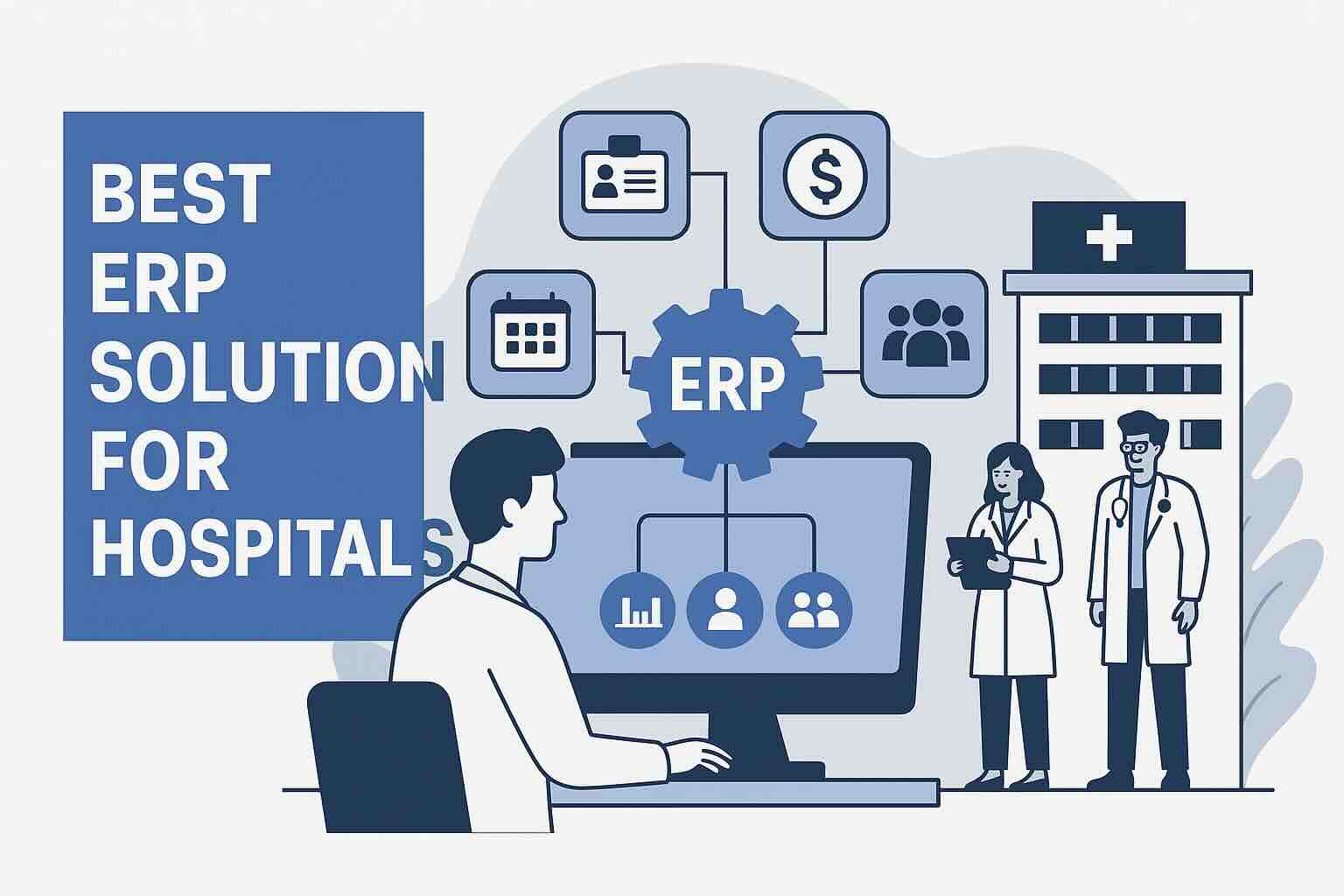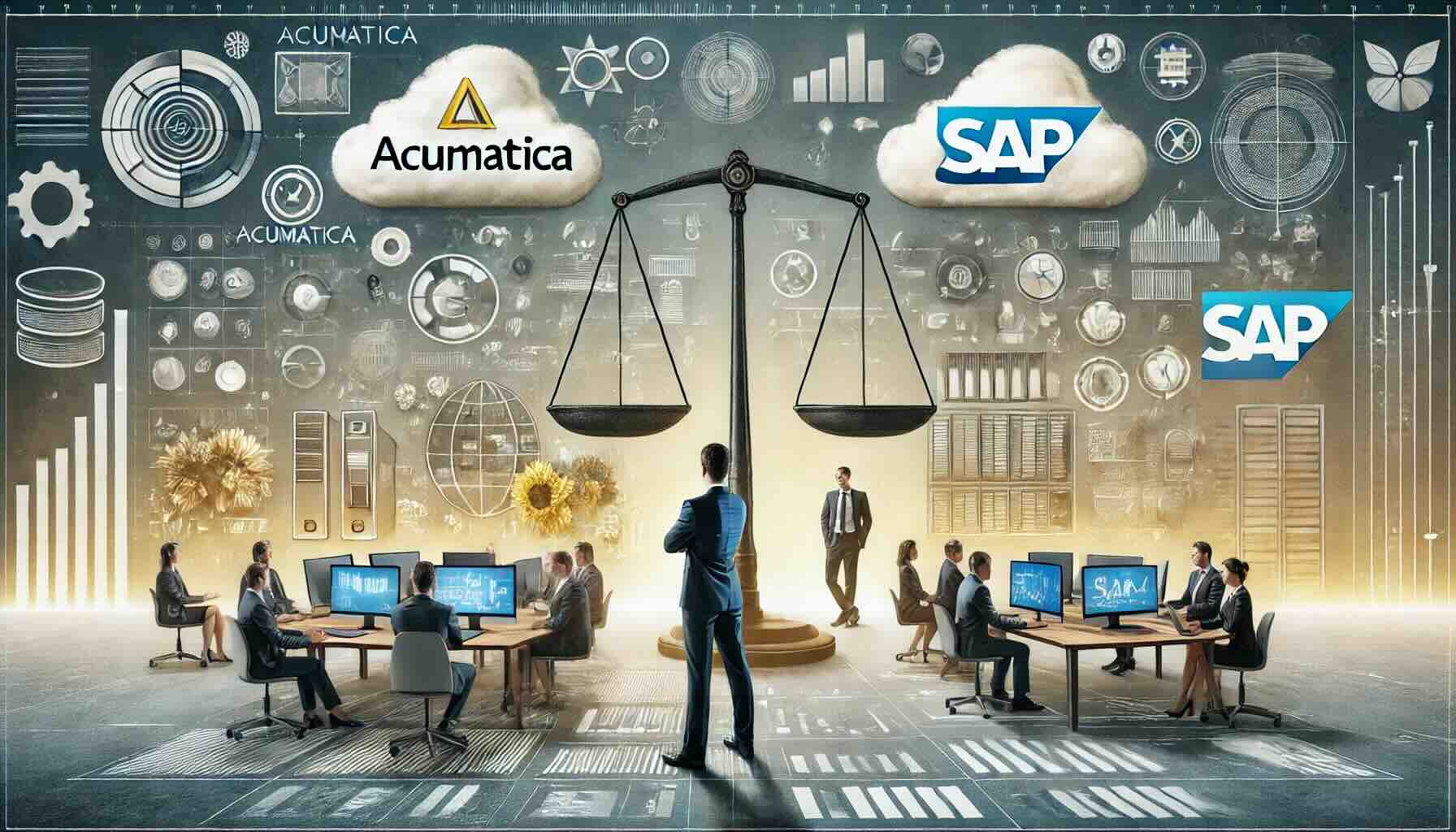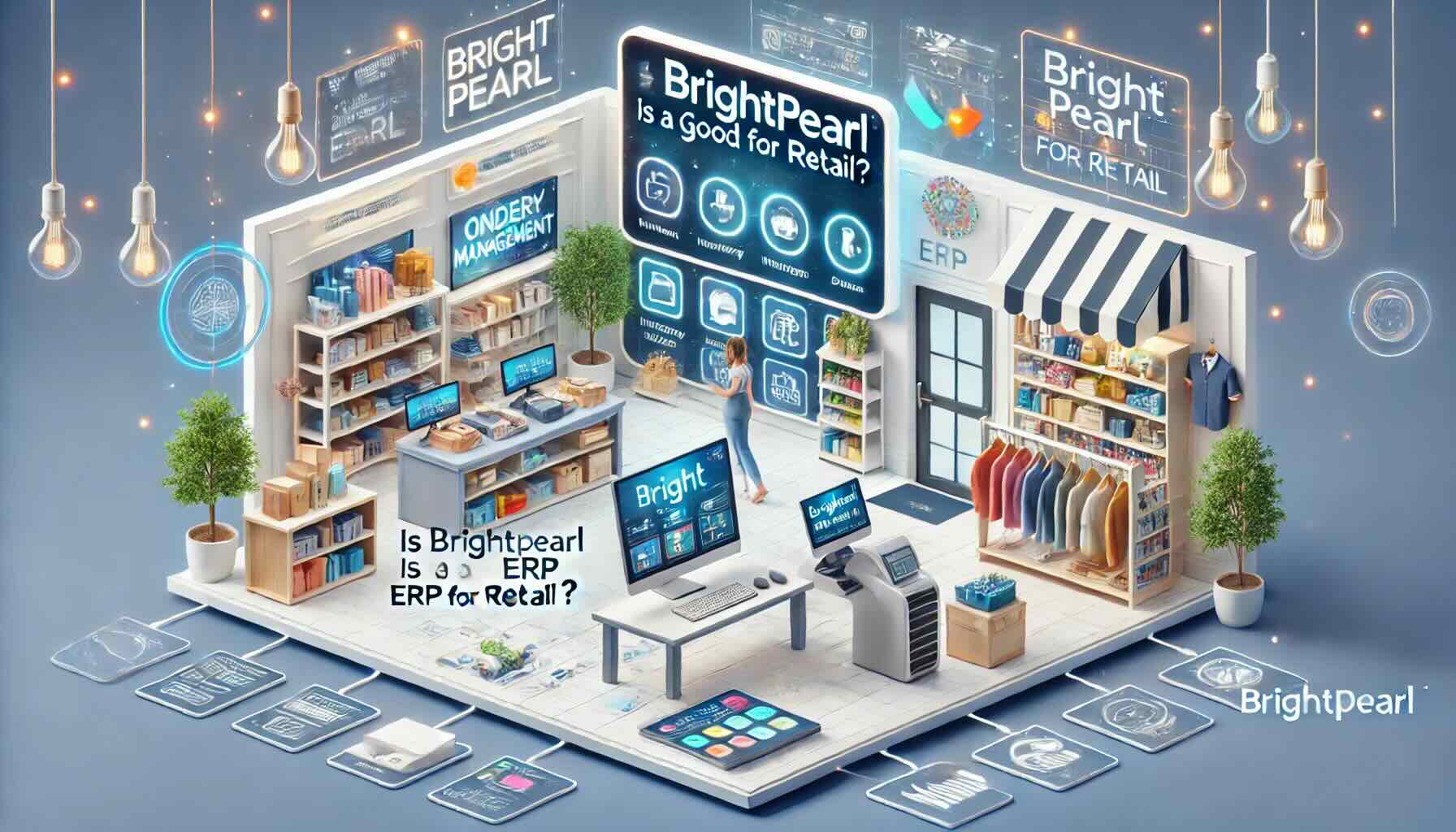The Best ERP Systems for Financial Leaders

As a financial leader, your role extends far beyond managing budgets and crunching numbers. Today, you’re expected to spearhead strategic growth, optimize operational efficiency, and drive your organization’s digital transformation. At the heart of these efforts is a powerful Enterprise Resource Planning (ERP) system. The right ERP system can unify your company’s data, streamline financial processes, and provide actionable insights—but finding the best ERP system for financial leaders can be a daunting task.
In this guide, we’ll explore what makes an ERP system essential for financial leaders, key factors to consider when selecting one, and the top ERP solutions available in 2025.
Why ERP Systems Matter for Financial Leaders
An ERP system is the backbone of your company’s financial and operational infrastructure. As a financial leader, implementing the best ERP system can help you:
- Consolidate Financial Data: Combine data from various departments into a single source of truth for accurate reporting and decision-making.
- Enhance Reporting and Analytics: Gain access to real-time insights for strategic planning and forecasting.
- Ensure Compliance: Simplify regulatory compliance with accounting standards like IFRS, GAAP, and local tax regulations.
- Drive Scalability: Support growth by managing complex operations and increased transaction volumes.
- Reduce Costs: Automate repetitive tasks, reduce manual errors, and optimize resource allocation.
Key Factors to Consider When Choosing the Best ERP System for Financial Leaders
To ensure your ERP system aligns with your organization’s financial goals and strategic needs, consider the following factors:
1. Scalability and Growth Potential
Your ERP system should adapt as your organization grows. Ensure it can handle:
- Increased transaction volumes
- New business units or departments
- Expansion into global markets
2. Advanced Financial Features
Look for ERP systems that offer:
- Comprehensive accounting modules (e.g., GL, AR, AP, and fixed assets)
- Sophisticated financial planning and analysis tools
- Automated financial reporting and audit readiness
3. Seamless Integration
The best ERP systems for financial leaders integrate effortlessly with:
- Business Intelligence (BI) tools
- Payroll and HR platforms
- CRM and supply chain management software
4. Cloud vs. On-Premises Deployment
Decide whether a cloud-based or on-premises ERP system suits your organization:
- Cloud ERP: Offers flexibility, scalability, and remote access.
- On-Premises ERP: Provides more control and may be suitable for industries with strict data security requirements.
5. Ease of Use and Training
Choose a system with an intuitive interface and robust training resources to ensure seamless adoption by your finance team.
6. Vendor Support and Reputation
Select an ERP vendor with:
- A strong track record in your industry
- High-quality customer support
- Regular updates and innovations
The Best ERP Systems for Financial Leaders in 2025
Based on functionality, scalability, and user reviews, here are some of the top ERP systems for financial leaders:
1. SAP S/4HANA
- Overview: SAP S/4HANA is a next-generation ERP system designed for large enterprises looking for robust financial tools and advanced analytics.
- Key Features: Real-time financial insights, AI-driven automation, and predictive analytics.
- Strengths: SAP’s powerful in-memory database enables real-time reporting and forecasting. It is particularly strong in industries like manufacturing and retail.
- Drawbacks: Higher implementation costs and complexity, making it ideal for enterprises with significant IT resources.
To find out more about SAP S/4HANA you can visit this link.
2. Oracle NetSuite
- Overview: A cloud-based ERP solution designed for small to mid-sized businesses.
- Key Features: Customizable dashboards, financial consolidation, and integrated CRM functionality.
- Strengths: NetSuite’s cloud-first design ensures scalability and real-time access to data. Its modular approach allows businesses to implement only what they need.
- Drawbacks: Customization can be costly, and there may be a steeper learning curve for new users.
To find out more about Oracle NetSuite you can visit this link.
3. Microsoft Dynamics 365
- Overview: A comprehensive ERP and CRM solution seamlessly integrated with Microsoft’s ecosystem.
- Key Features: AI-enhanced insights, advanced financial reporting, and scalability for growing organizations.
- Strengths: Ideal for companies already using Microsoft products. Its user-friendly interface and powerful analytics tools are a big plus.
- Drawbacks: Limited out-of-the-box functionality for certain industries may require additional customization.
To find out more about Microsoft Dynamics you can visit this link.
4. Workday Financial Management
- Overview: Designed for companies that prioritize workforce and financial integration.
- Key Features: Real-time financial visibility, compliance management, and predictive analytics.
- Strengths: Workday is known for its ease of use and strong focus on workforce management alongside financials. It’s an excellent choice for service-oriented industries.
- Drawbacks: Limited functionality for manufacturing and distribution-focused businesses.
To find out more about Workday you can visit this link.
5. Infor CloudSuite
- Overview: A cloud-based ERP system tailored to specific industries like manufacturing, healthcare, and distribution.
- Key Features: Industry-specific functionality, strong financial reporting tools, and analytics.
- Strengths: Infor excels in delivering solutions tailored to niche markets, offering deep functionality for specific needs.
- Drawbacks: May not offer the same breadth of features as some competitors, particularly for non-specialized industries.
To find out more about Infor you can visit this link.
Steps to Choose and Implement the Best ERP System for Financial Leaders
Follow these steps to ensure a smooth ERP implementation:
- Identify Needs: Pinpoint your organization’s financial challenges and objectives.
- Shortlist Solutions: Compare ERP systems based on features, scalability, and cost.
- Request Demos: Schedule live demos to see how each ERP solution aligns with your workflow.
- Gather Feedback: Consult with other financial leaders and IT experts who have used the system.
- Plan Implementation: Work with internal teams and vendors to create a clear roadmap.
- Track ROI: Set measurable KPIs to evaluate the system’s impact on your financial operations.
Conclusion: Finding the Best ERP System for Financial Leaders
Choosing the right ERP system is a critical decision that can transform your financial operations and overall business strategy. By focusing on scalability, advanced financial features, and seamless integration, you can find an ERP system that not only meets today’s needs but also prepares your organization for future challenges.
Take the time to evaluate your options and consult with experts to ensure you select the best ERP system for financial leaders.
Ready to take the next step? With our AI-powered Compare ERP tool, you can effortlessly explore and compare solutions tailored to your unique business needs. It’s free to use, and you’ll receive a guaranteed discount on your first year’s license fees with a referral from Compare ERP. Take the first step toward streamlining your processes and boosting productivity and start comparing today!









